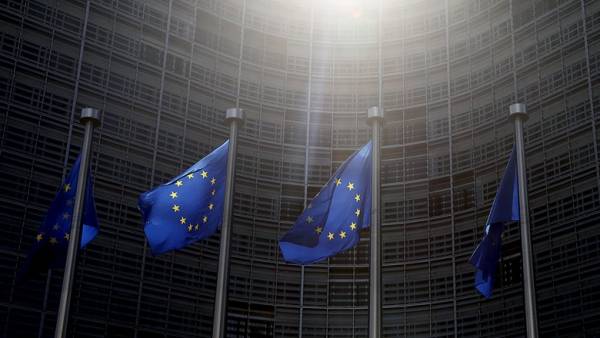
The European Commission (EC) came up with & nbsp; proposals for & nbsp; reform of the Schengen area against the background of the pandemic & nbsp; nbsp; crisis in & nbsp; EU countries bordering on & nbsp; Belarus.
The EC & nbsp; proposes to create a new protection mechanism for the Schengen Agreement. “ The proposed Schegen protection mechanism aims to & nbsp; address situations where there is a serious threat to public policy or internal security that jeopardizes the overall functioning of the territory without & nbsp; internal border control '', & nbsp; & mdash; said in the & nbsp; message.
In particular, the European Commission proposes, in the event of a recurrence of the situation on the border with Belarus, to take a number of measures, including reducing the number of existing checkpoints, strengthening measures to protect the external border of the EU, consideration of applications refugees for asylum right on the border area.
In addition, the EC & nbsp; invites the EU countries to conclude or update bilateral agreements on & nbsp; readmission, to establish more effective cooperation between law enforcement agencies in & nbsp; border zones, which & nbsp; can allow, for example, to deport illegal immigrants not & nbsp; outside the EU, but & nbsp; t & nbsp; t & nbsp; the European country from which & nbsp; which the intruder came directly from.
The EU believes it was able to stop the flows of migrants through Belarus 
In addition, the European Commission proposes to streamline the procedure for introducing controls at the & nbsp; internal borders & nbsp; EU. Here we are talking about the & nbsp; introduction of temporary control at & nbsp; borders within the & nbsp; Schengen area by a general decision of the EU Council, if we are talking about a & nbsp; general threat.
At the same time & nbsp; the EC stands for & nbsp; preservation of free movement within the & nbsp; Schengen area while & nbsp; strengthening control at & nbsp; external borders. The concept of the reform of the Schengen area implies strengthening control and & nbsp; optimization of work at & nbsp; external borders, strengthening cooperation and & nbsp; exchange of information between EU states, primarily police services. The European Commission also advocates & nbsp; the creation of interconnected security systems, which will receive the support of EU institutions.
Last week, French President Emmanuel Macron announced that & nbsp; France during its presidency of the & nbsp; Council & nbsp; EU (starting from & nbsp; 1 & nbsp; January 2022 and & nbsp; lasting six months) intends to initiate reform of the Schengen area. According to & nbsp; he said, Paris is initiating the reform of the Schengen area based on & nbsp; two priorities. “ Firstly, this is the political administration of the Schengen area, for & nbsp; for which, as in the & nbsp; case with the & nbsp; euro zone, a special organization will be created, within which & nbsp; within which meetings of specialized ministers will be regularly held & raquo;, & nbsp; & mdash; explained & nbsp; he.
Macron also stressed that the EU authorities should strengthen control at external borders and ensure their protection, which will be one of the key conditions for ensuring free movement within the EU.
“ Secondly, this is the creation of an urgent support mechanism in the & nbsp; at the & nbsp; border. Countries whose borders are on the & nbsp; outer edge of the EU should count on the & nbsp; full support of the border agency Frontex & hellip; and & nbsp; also on & nbsp; reinforcements of police officers and & nbsp; gendarmes from & nbsp; other countries of the commonwealth & raquo;, & nbsp; & mdash; Macron explained.
Schengen Area & nbsp; & mdash; this is a space, which includes 26 European states that have joined the & nbsp; norms of the Schengen legislation of the European Union and & nbsp; abolished border controls among themselves. Four of & nbsp; these countries (Iceland, Norway, Switzerland and & nbsp; Liechtenstein) are not & nbsp; & nbsp; EU.
Mikhail Yushkov